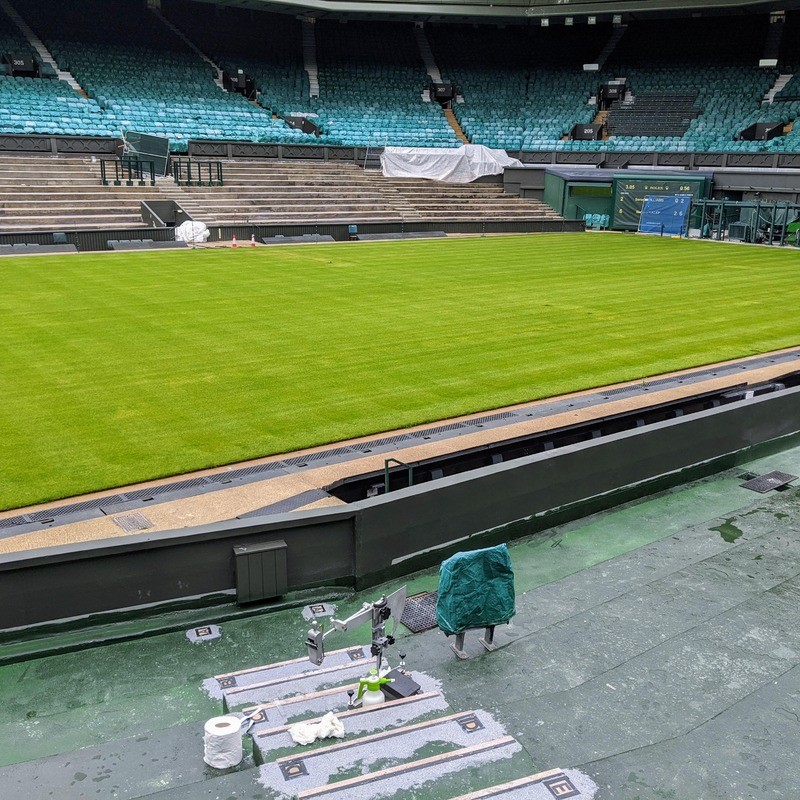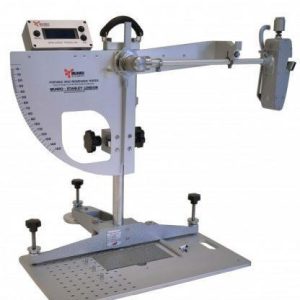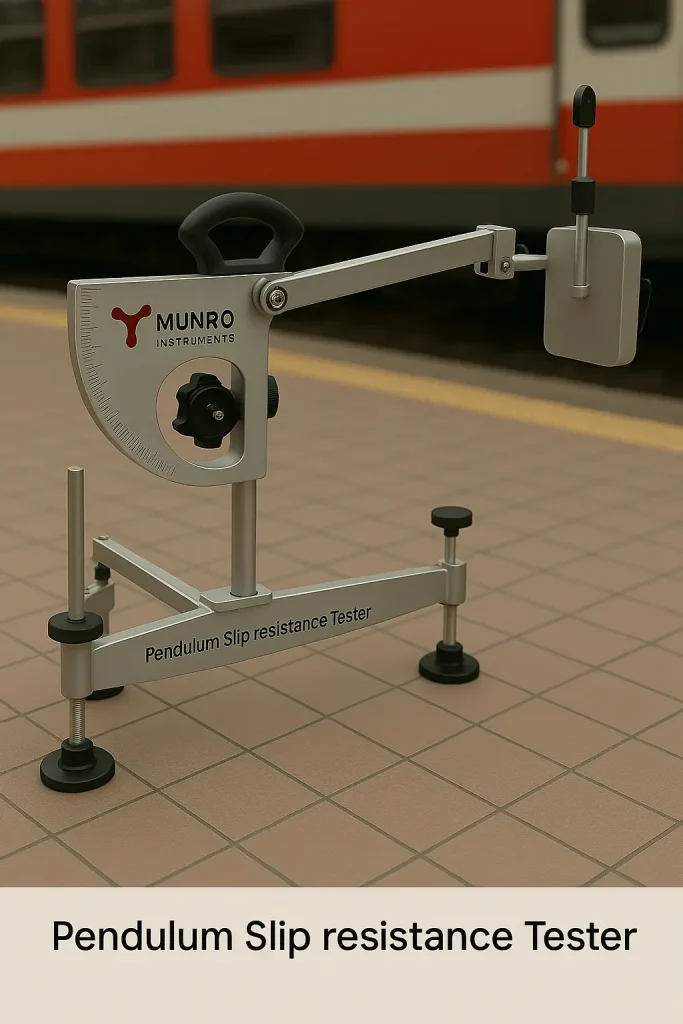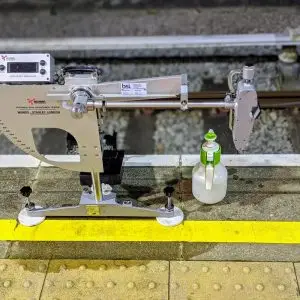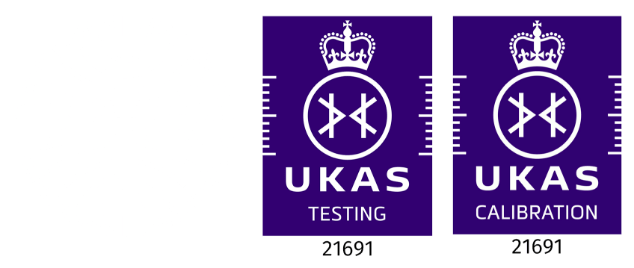Munro’s Slip Resistance Testing Service provides service to public places, hotels, restaurants, stadiums, airports and more
slip testing service for Risk Managers
Slip testing services are essential for risk managers aiming to ensure safety and compliance in various environments, from commercial buildings to industrial settings. These services measure the slip resistance of flooring surfaces, which is critical in preventing slip and fall accidents, thereby reducing liability and enhancing workplace safety.
Why Slip Testing is Important
- Safety Compliance: Ensures that floors meet regulatory safety standards.
- Accident Prevention: Identifies surfaces that could pose slip hazards.
- Risk Management: Helps in developing effective safety protocols.
- Liability Reduction: Minimizes the risk of costly litigation due to accidents.
- Maintenance Planning: Assists in planning maintenance schedules to keep floors safe.

Slip Testing service for plant Managers
A slip testing service for plant managers involves assessing the slip resistance of floors within industrial plants to ensure the safety of workers and prevent accidents. This service typically includes conducting standardized slip resistance tests using specialized equipment and providing detailed reports on the findings. Plant managers can then use this information to implement necessary measures to minimize slip and fall risks, such as installing anti-slip coatings or improving floor maintenance procedures.
Slip testing service for Facilities Coordinator
A slip testing service for a Facilities Coordinator involves assessing the slip resistance of floors within a facility to ensure safety standards are met. This service typically includes:
- Testing Procedure: Conducting tests using Pendulum Tester.
- Evaluation: Analyzing test results to determine the slip resistance of different areas within the facility.
- Reporting: Providing detailed reports outlining the findings of the testing, including areas of concern and recommendations for improvement.
- Recommendations: Offering suggestions for implementing measures to enhance slip resistance, such as applying anti-slip coatings or implementing better cleaning and maintenance practices.
- Compliance: Ensuring that the facility meets relevant safety standards and regulations regarding slip resistance.
- Ongoing Monitoring: Suggesting periodic testing to monitor the effectiveness of implemented measures and to address any changes in slip resistance over time.
slip testing service for Real Estate
A slip testing service for real estate involves assessing the slip resistance of various surfaces within properties to ensure safety and prevent accidents. This service can be crucial for real estate owners, property managers, and developers who want to mitigate liability risks and provide a safe environment for occupants and visitors. Slip testing typically involves using specialized equipment to measure the coefficient of friction on floors, stairs, ramps, and other walking surfaces. The results of these tests can help identify areas that may pose slip hazards and inform decisions on implementing appropriate safety measures such as anti-slip treatments or surface modifications.
Slip testing service for Building Manager
A slip testing service for building managers involves assessing the slip resistance of floors within a building to ensure safety for occupants and visitors. This service typically includes:
- Surface Testing: Conducting tests using specialized equipment to measure the coefficient of friction (COF) of various flooring surfaces.
- Documentation: Providing detailed reports on the slip resistance levels of different areas within the building, highlighting any areas of concern or non-compliance with safety standards.
- Recommendations: Offering recommendations for improving slip resistance, which may include the use of non-slip coatings, mats, or other treatments.
- Compliance Assistance: Helping building managers understand and comply with relevant safety regulations and standards regarding slip resistance.
- Regular Inspections: Offering ongoing inspection services to ensure that slip resistance levels are maintained over time and identifying any new areas of concern.
Slip Resistance Testing Service For Site Manager
As a site manager, ensuring the safety of your premises is paramount. Slip and fall accidents can not only cause injuries but also lead to legal liabilities and reputation damage. Our Slip Resistance Testing Service offers a comprehensive solution to assess and mitigate slip hazards, safeguarding your facility and its occupants.
Why Choose Our Service?
- Accurate Assessments: Our experienced technicians utilize state-of-the-art equipment to conduct precise slip resistance tests on various surfaces, including floors, walkways, and stairs.
- Compliance Assurance: We help you meet regulatory standards and industry guidelines by providing detailed reports outlining the slip resistance levels of your surfaces.
- Risk Mitigation: Identify potential slip hazards before accidents occur. Our testing service enables you to proactively address areas of concern, reducing the likelihood of slips and falls.
- Customized Solutions: Every facility is unique, which is why we tailor our testing approach to suit your specific needs and requirements. Whether you manage a commercial property, industrial site, or healthcare facility, we have the expertise to assist you.
Slip Testing Service for Asset Manager
A slip testing service for asset managers involves assessing and analyzing the slip resistance of various surfaces within the managed properties. This service aims to prevent slip and fall accidents, which can lead to injuries and liabilities for the asset manager. By conducting thorough slip tests using specialized equipment and techniques, the service provider can identify potential hazards and recommend appropriate measures to improve safety. This may include applying anti-slip coatings, modifying surface textures, or implementing regular maintenance procedures. Ultimately, the goal is to create safer environments for occupants and reduce the risk of accidents and legal issues for the asset manager.

